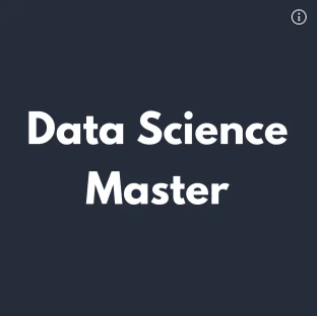Introduction:
In today’s data-driven world, the role of a data scientist has gained immense significance. Data scientists play a pivotal role in extracting valuable insights from vast amounts of data, driving business decisions, and solving complex problems across various industries. If you aspire to become a data scientist, this article provides a comprehensive guide to help you navigate the path towards this exciting and rewarding career.
1. Acquire the Necessary Skills:
There are different areas of skills to be developed for the jobs handled by a data scientist.
a. Programming Skills:
Proficiency in programming languages is essential for data scientists. Start by learning languages like Python or R, which are widely used in the field. Understand the fundamentals of coding, data structures, and algorithms.
b. Statistics and Mathematics:
A strong foundation in statistics and mathematics is crucial. Familiarize yourself with concepts like probability, hypothesis testing, linear algebra, and calculus. Understanding these principles will enable you to analyze data and build models effectively.
c. Data Manipulation and Analysis:
Develop skills in data manipulation and analysis using tools like SQL (Structured Query Language). Learn how to extract, clean, and transform data to derive meaningful insights.
d. Machine Learning:
Gain knowledge of machine learning algorithms and techniques. Understand supervised and unsupervised learning, regression, classification, clustering, and dimensionality reduction. Implement these algorithms using libraries like scikit-learn or TensorFlow.
e. Data Visualization:
Data visualization skills are important for presenting insights in a visually appealing and understandable manner. Learn tools like Tableau or Matplotlib to create informative and impactful visualizations.
2. Gain Practical Experience:
Data Science is also a subject of applied science. It is vital to build up solid experience by doing more projects or practices.
a. Projects and Kaggle Competitions:
Undertake hands-on projects to apply your skills and gain practical experience. Work on real-world datasets, solve problems, and document your process. Participate in Kaggle competitions to benchmark your skills against other data scientists.
b. Internships and Collaborations:
Seek internships or collaborate with organizations and professionals in the field. Real-world experience will help you understand industry practices, work on complex projects, and enhance your skill set.
c. Open-Source Contributions:
Contribute to open-source projects related to data science. Engaging with the data science community will expose you to new techniques, collaborations, and learning opportunities.
3. Continuous Learning and Upskilling:
Technical proficiencies that are relevant today might become obsolete in the near future. Embrace the journey of continuous learning, for it is the path that leads to endless growth and boundless opportunities.
a. Stay Updated:
Data science is a rapidly evolving field, and it is essential to stay updated with the latest trends, tools, and techniques. Follow industry blogs, attend webinars, and join relevant online communities to keep abreast of the advancements.
b. Online Courses and Certifications:
Enroll in online courses and certifications to expand your knowledge base. Platforms like Coursera, edX, and DataCamp offer comprehensive data science courses taught by industry experts.
c. Join Data Science Competitions:
Participate in data science competitions hosted by platforms like Kaggle or DrivenData. These competitions provide valuable learning experiences and exposure to real-world datasets and problem-solving scenarios.
4. Build a Strong Portfolio:
Create a portfolio showcasing your projects, contributions, and achievements. Include detailed descriptions of your work, methodologies employed, and the insights derived. A strong portfolio demonstrates your skills and expertise to potential employers.
5. Network and Collaborate:
Unlock the power of networking and collaboration, where diverse minds converge to amplify creativity, foster innovation, and achieve collective success.
a. Attend Conferences and Meetups:
Participate in data science conferences, seminars, and meetups. These events provide opportunities to network with industry professionals, learn from experts, and stay connected with the data science community.
b. Online Communities:
Engage with online communities such as data science forums, LinkedIn groups, and GitHub repositories. Actively participate in discussions, seek guidance, and share your knowledge to establish your presence in the community.
c. Mentorship:
Seek mentorship from experienced data scientists or join mentorship programs. Mentors can provide valuable guidance, share industry insights, and help you navigate your career path effectively.
Conclusion:
Becoming a data scientist requires a combination of technical skills, practical experience, continuous learning, and a passion for problem-solving. The journey may seem challenging, but with determination, dedication, and a strategic approach, you can prepare yourself for a successful career in data science. Remember to continuously update your skills, build a strong portfolio, network with industry professionals, and stay curious. Embrace the ever-evolving nature of data science, and you will be well-equipped to make significant contributions in this exciting field.

